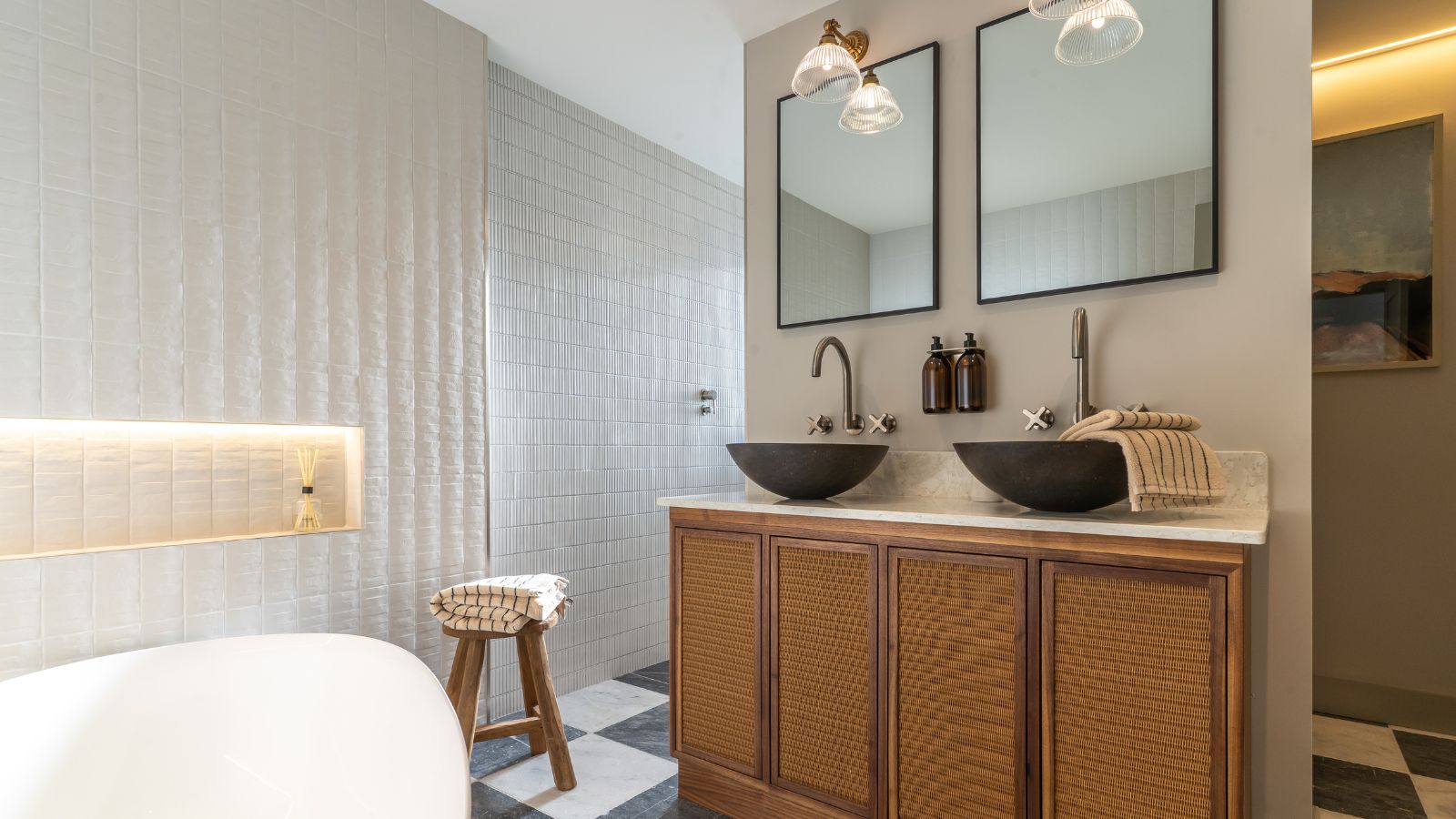
Finding effective ways to clean bathroom floors without the nasty chemicals that can harm us, our pets and the planet is an increasingly important aspect of this non-negotiable household chore.
The good news is, whatever the type of flooring you have in your bathroom, there's a natural way to clean it that doesn't involve using harsh chemicals such as bleach and ammonia, our cleaning experts say.
The beauty of cleaning your home in ways that don't harm the planet is they're also cheaper than commercial products and have multiple uses around the home.
7 best ways to clean bathroom floors without harsh chemicals
1. Frequently
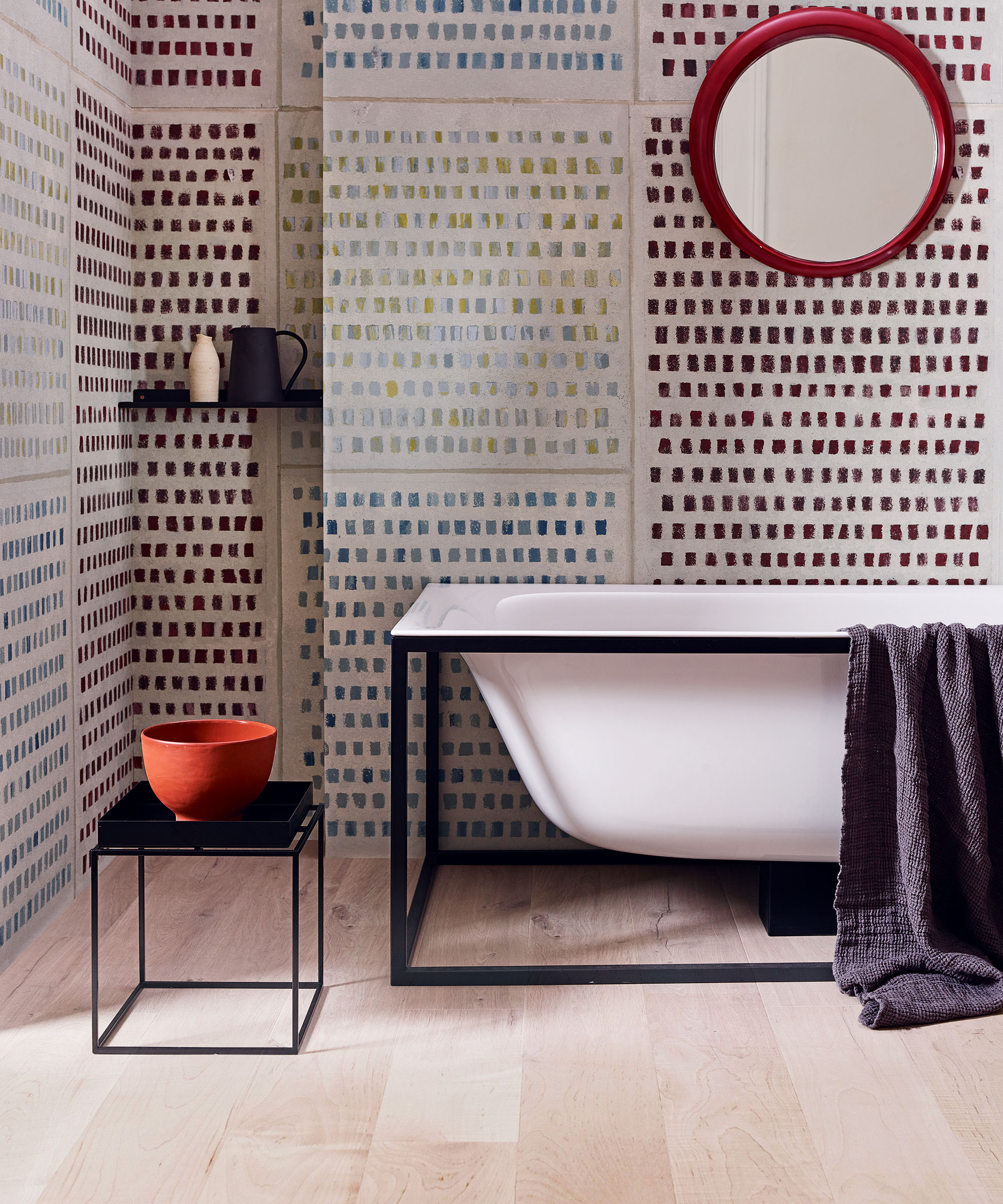
Keeping on top of cleaning your bathroom is always the best option, though easier said that done with our busy lives. This is because bathrooms are busy places, subject to lots of bacteria and mold spores, and keeping it as clean as possible is best for the health of all who use it or live in the house.
Bathroom floors gather hair and dust, are prone to spills and debris as well as the minerals in water which can accumulate quickly, leaving the floor grimy. The longer you leave to clean it, the more you might feel the need for a harsher cleaning chemicals.
The regular high-humidity levels also factor in to the dirt on your floor becoming a mold, mildew or bacteria risk.
Regularly vacuum with one of the best vacuums will help to maintain your floors and highlights those areas that might need more of a tougher approach. We tried and tested dozens of vacuums and rated the Dyson Gen5detect the best overall.
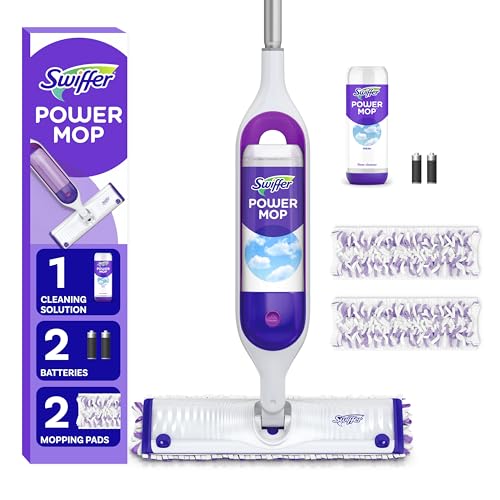
This Amazon bestseller includes the Powermop, two pad refills, cleaning solution and batteries to run in. Keep your kitchen and bathroom mops separate to prevent bacteria from the bathroom being introduced into the kitchen and keeping a healthy home microbiome.
2. Steaming
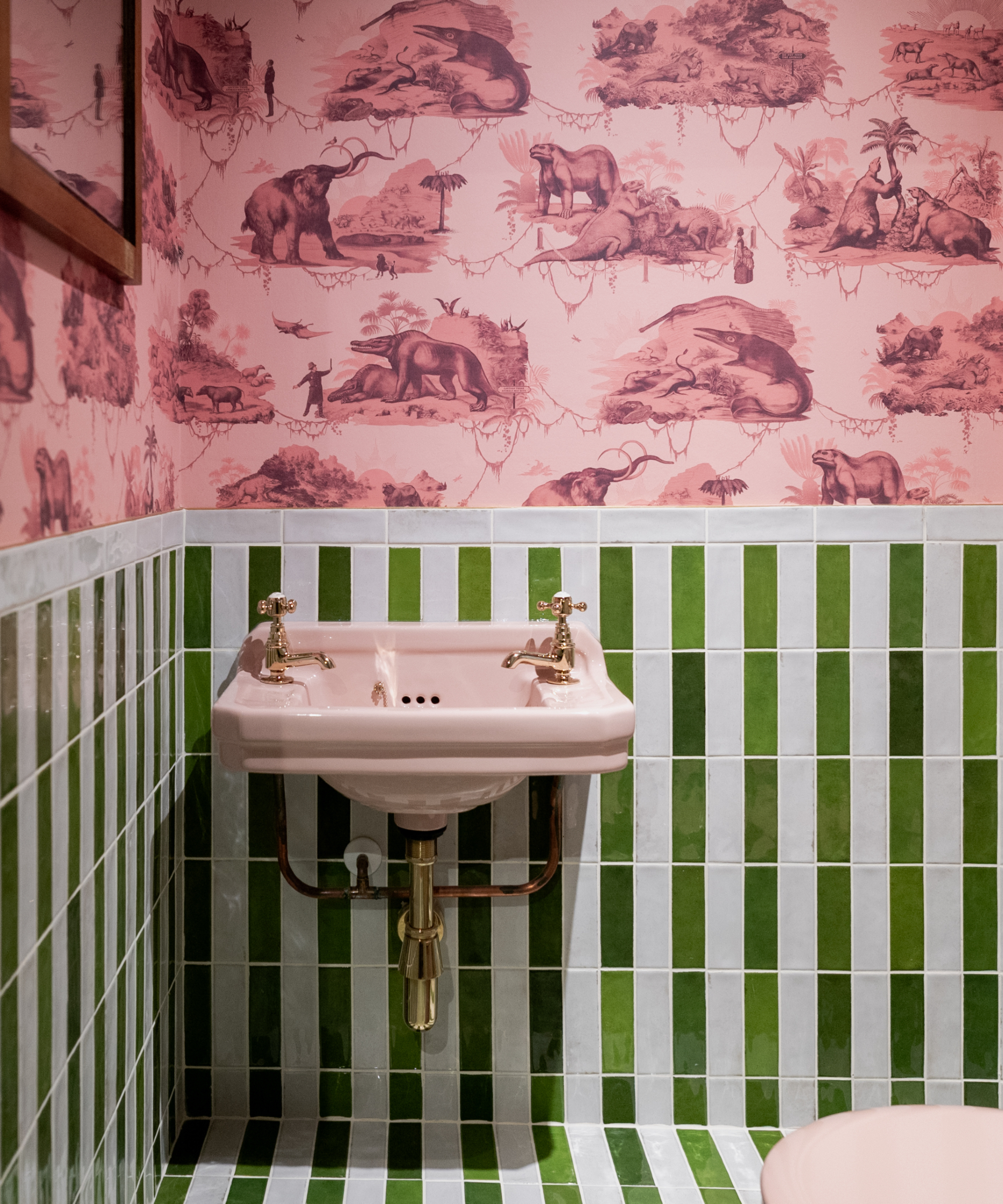
Cleaning floors effectively with a steam mop such as the Black and Decker Steam Mop on Amazon, rated our best overall steam cleaner, is a fantastic option for bathroom floors. Not only is it eco-friendly, avoiding offloading chemicals into the air or water system, but it's fast, kills bacteria and isn't messy – no buckets of water and wet mops to deal with.
'This is usually my go-to cleaning method,' says Will Cotter, CEO of Happy Cleans. 'The hot steam loosens up dirt, kills bacteria, and dries quickly. I simply glide the cleaner over the floor like a vacuum, and the heat does the hard work.'
It's worth noting that not all floors can be steamed including when cleaning engineered hardwood floors for example that haven't had a thorough sealing, so do check first. Will agrees, 'Only use this if the floor has proper sealing. Steam cleaning is perfect for sealed tiles but unsealed floors can absorb the moisture and get damaged over time.'
All prices correction at time of writing.
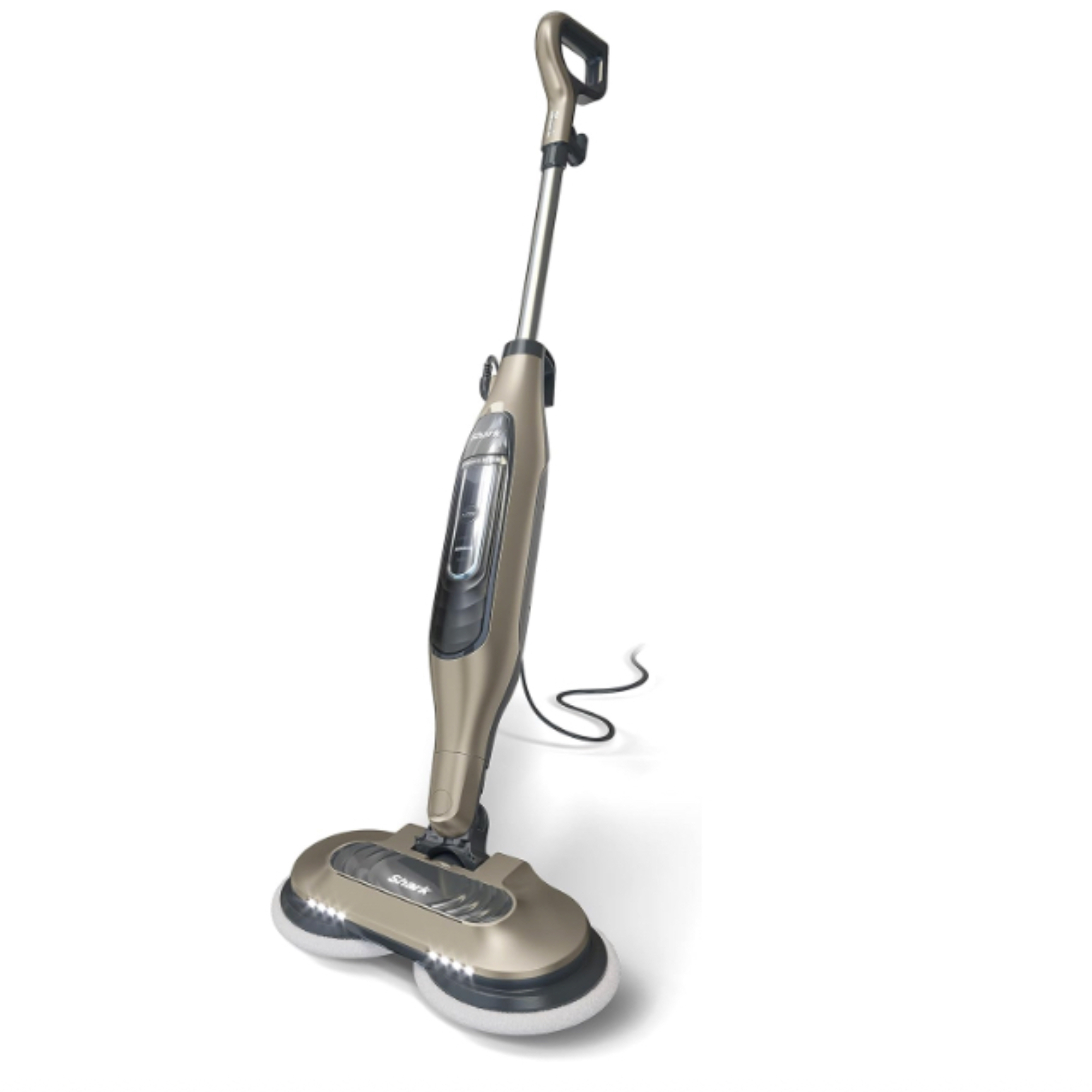
A multi-action design that has powerful steam and rotating pads that scrub the floor. There are three modes: light, normal and deep. It will remove 99.9% of bacteria using chemical free sanitation and leave your bathrooms floors fresh and clean. There are powerful LED lights to light up those dark corners and it's designed for all sealed hard floors such as marble, tile and stone.
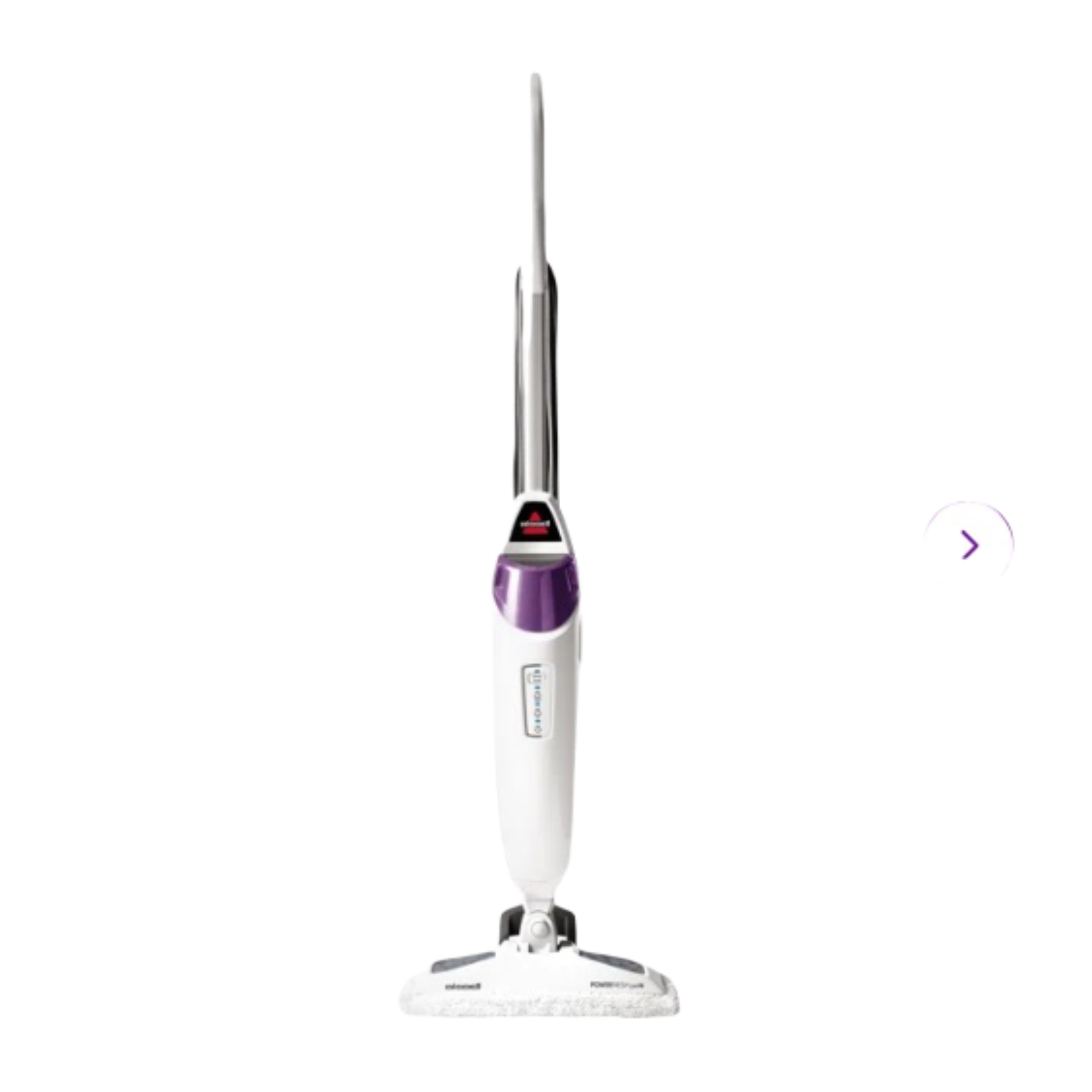
With a handy swivel head, this steamer also removes pet odors and stains. It comes with odor eliminating scent discs and a flip down easy scubber to get those stubborn marks out. There are three different steam levels and it is ready to use in 30 seconds.
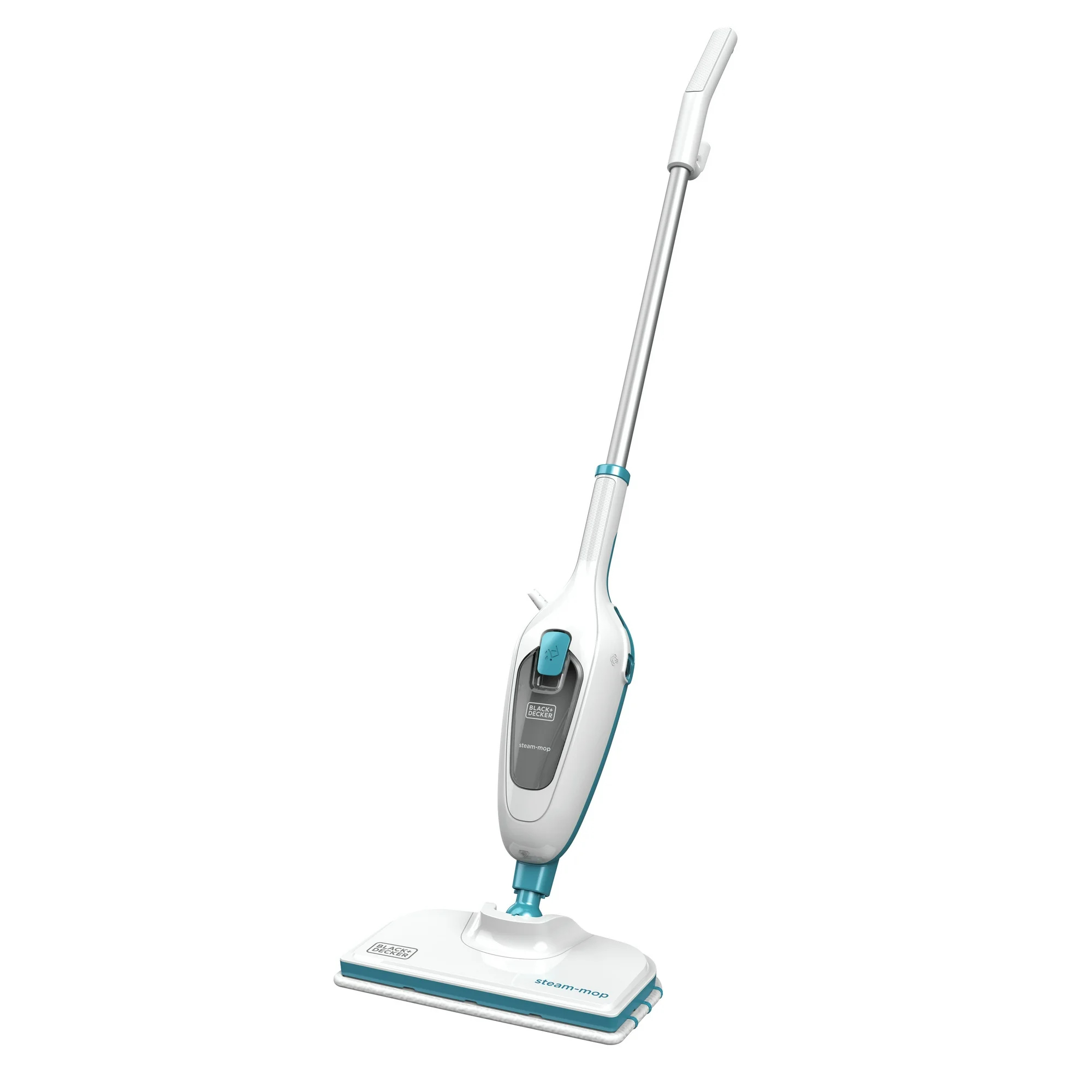
A good value option for those on a budget, this classic steam mop is tough on dirt and grime and ready to use in 30 seconds. It's ideal for all sealed floors and can be used in entry ways too. Killing up to 99% of germs, this design will clean floors in a healthy way. Also comes with a swivel head making it a good choice for manoeuvring around furniture.
3. Castile soap
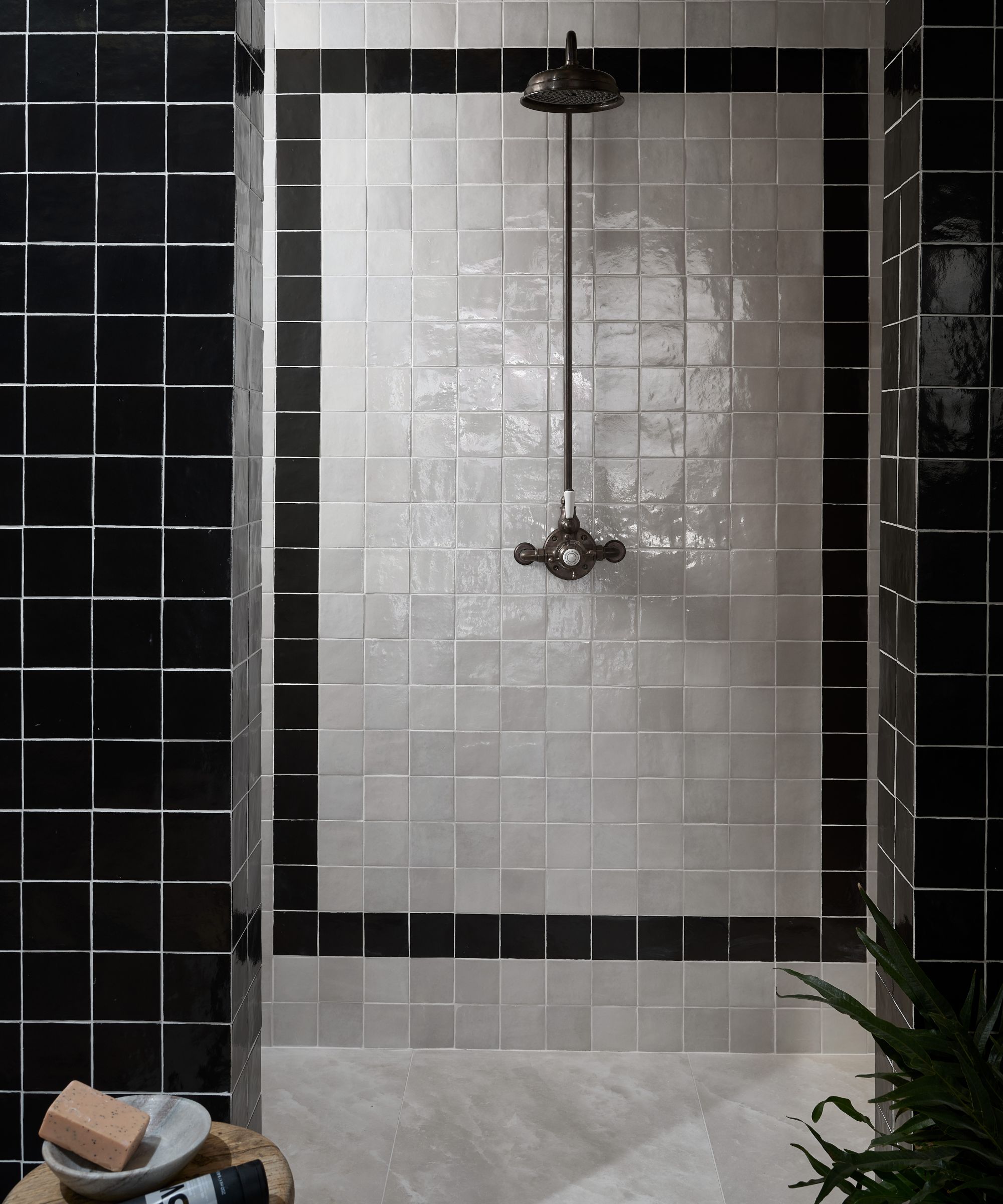
You may have heard of castile soap but possibly from a beauty point of view. However, it's as good for cleaning the floors and it's even a laundry secret ingredient cleaning pros swear by. Super versatile, castile soap, is vegetable based that's unscented and easy to use. It comes as a solid block or in liquid form.
Amazon's Dr. Bronner's Pure Castile Liquid Soap with a peppermint scent is a good size for giving it an initial whirl.
'One of my go-to tips that I love sharing with clients is to use castile soap,' says Evie Graham, professional cleaner and founder of Waste Direct. 'I mix a few drops with warm water and mop the floor and it cuts through dirt without leaving any sticky residue. What I like about it is that it doesn’t have that strong chemical smell and it’s great for families with kids or pets, which many of my clients appreciate.'
Will Cotter recommends it too, 'I love how versatile it is. A tablespoon mixed into a gallon of warm water creates a perfect, residue-free cleaner for both tile and vinyl floors. I mop as usual, and the floors come out looking clean without any greasy film left behind.'
There is one small downside – it can leave a slippery residue if you use too much, Will advises using a small amount, 'Always test on a small area first and rinse if needed. I like to follow up with a quick rinse or go over the floor with a damp mop to make sure no soap is left behind.'
4. Tea tree oil

Another fabulous alternative to consider is tea tree oil. Known for it's antibacterial, antiviral and anti fungal properties it's ideal for cleaning too.
Tea tree oil can be bought online (we love Amazon's Handcraft Blends Tea Tree Essential Oil that comes with a handy dropper), or from health stores, it's a great value option when you want a through clean.
'It’s perfect for cleaning bathroom floors and getting rid of germs,' says Evie Graham. 'I add a few drops to a bucket of warm water and not only does it disinfect but it also leaves a fresh, natural scent. It’s safe and eco-friendly which fits in with our ethos about reducing waste and using sustainable products wherever we can.'
5. Eco-friendly shop bought options
If you want a floor cleaner that has eco credentials and is easy to source, we recommend brands like Method, Bona and Eco-Me. They all have excellent credentials and are safe for pets and children.
- Method don't use parabens or phthalates, and don't test on animals. They use plant-based ingredients that are biodegradable so the impact to environment is lessened. Method products do have scents.
- Bona's philosophy is to design products that gently clean whilst keeping sustainability at the forefront. The floor products are made from plant derived ingredients with waterbased and biodegradable solutions to keep people, pets and the planet safer.
- Eco-Me use a plant-based formula that contains essential botanicals. It's ideal for tiles, stone, sealed wood, vinyl and laminate flooring. There are no sulphates, phthalates, ammonia or bleach and it's not tested on animals.
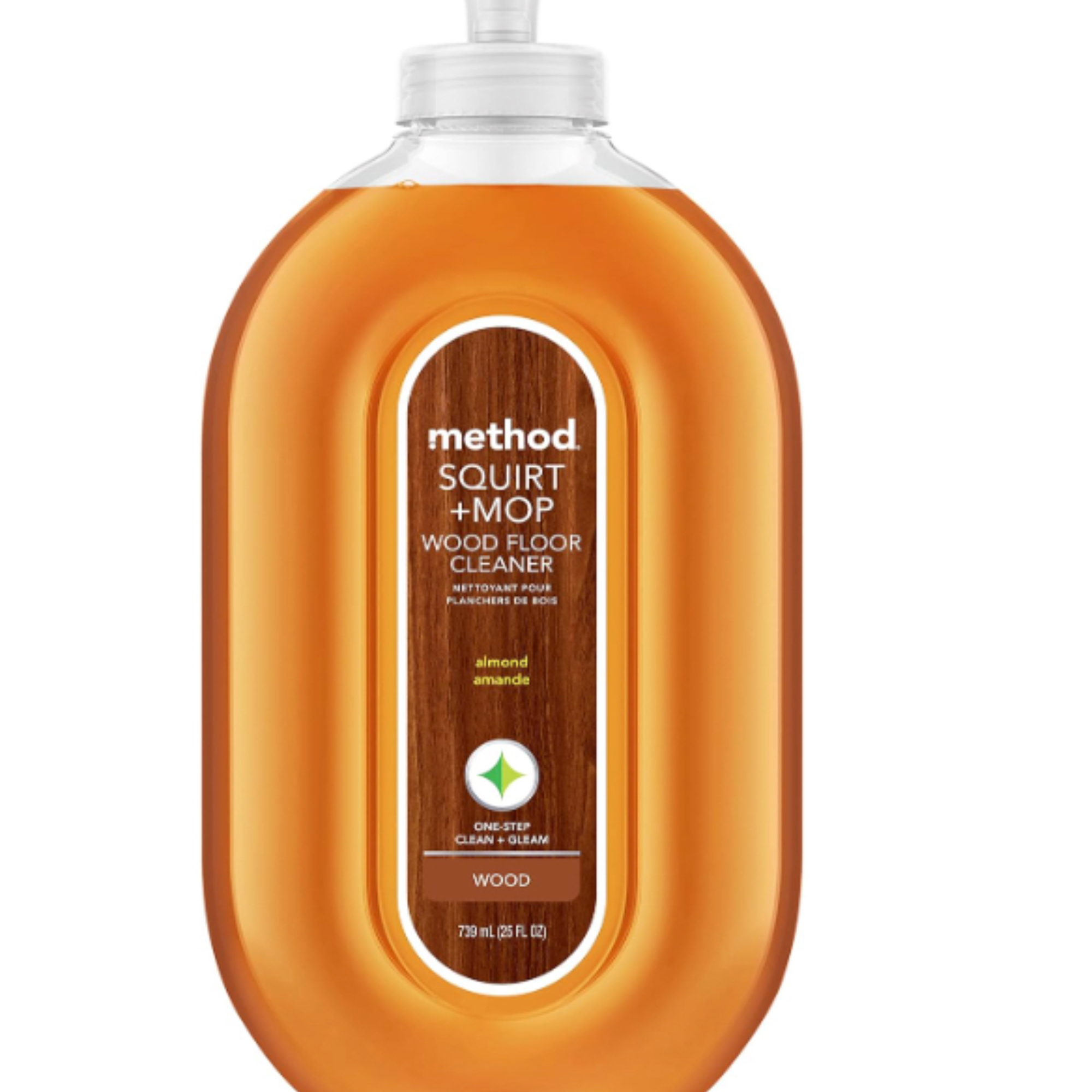
Use the 'squirt and mop' method rather than pouring a capful into a bucket for ease. This cleaner is for those who have hardwood floor in their kitchens or bathrooms. Made from naturally derived biodegradable fibers, it's 100% wax free and doesn't leave residue or build up. Comes with an almond scent.
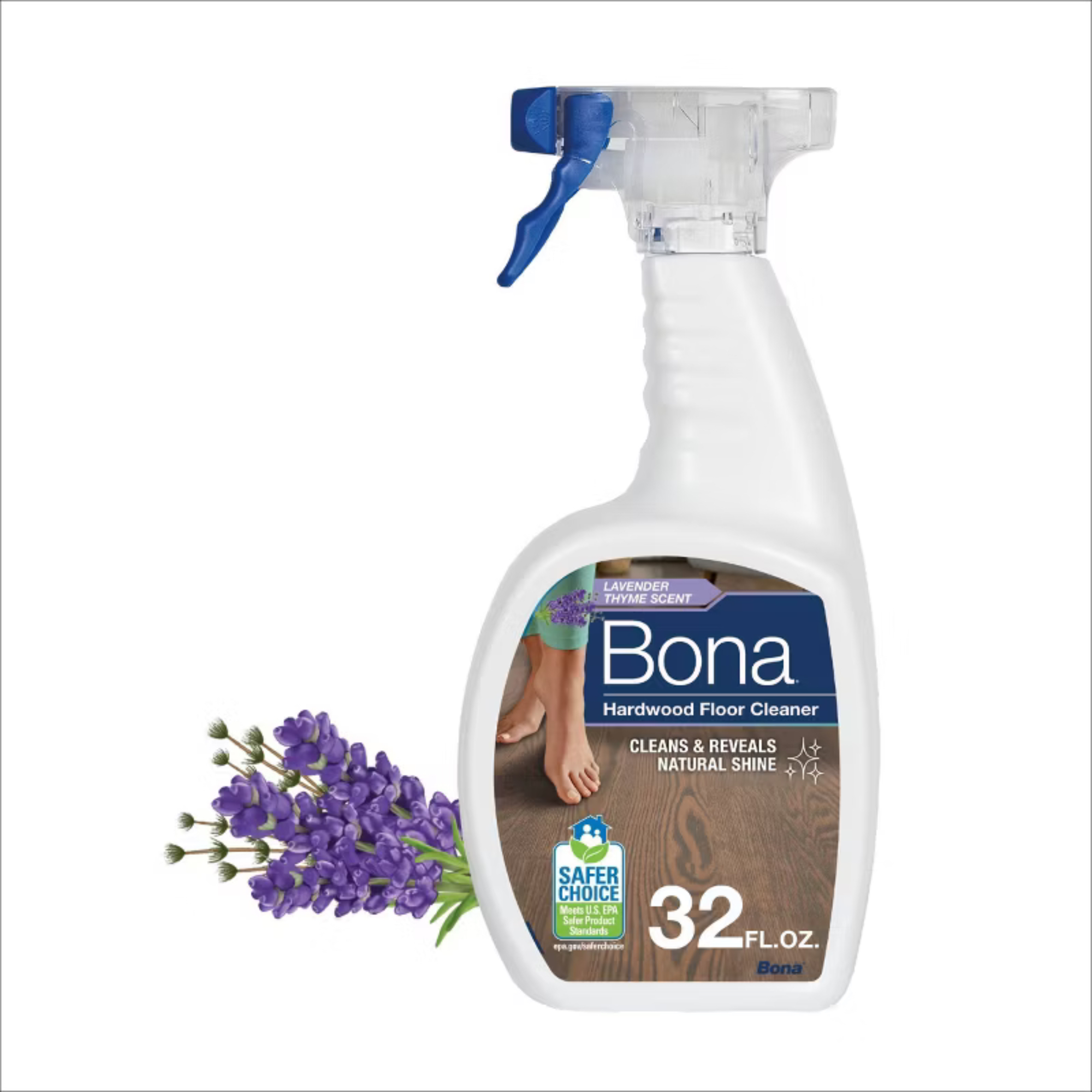
With essential oils of lavender, thyme and lemon, this plant-derived hardwood floor cleaner meets the US EPA product standards and is Safer Choice Certified for containing ingredients that are safer for people, pets and the planet. Quick and easy to use, you simply spray, mop and refill.
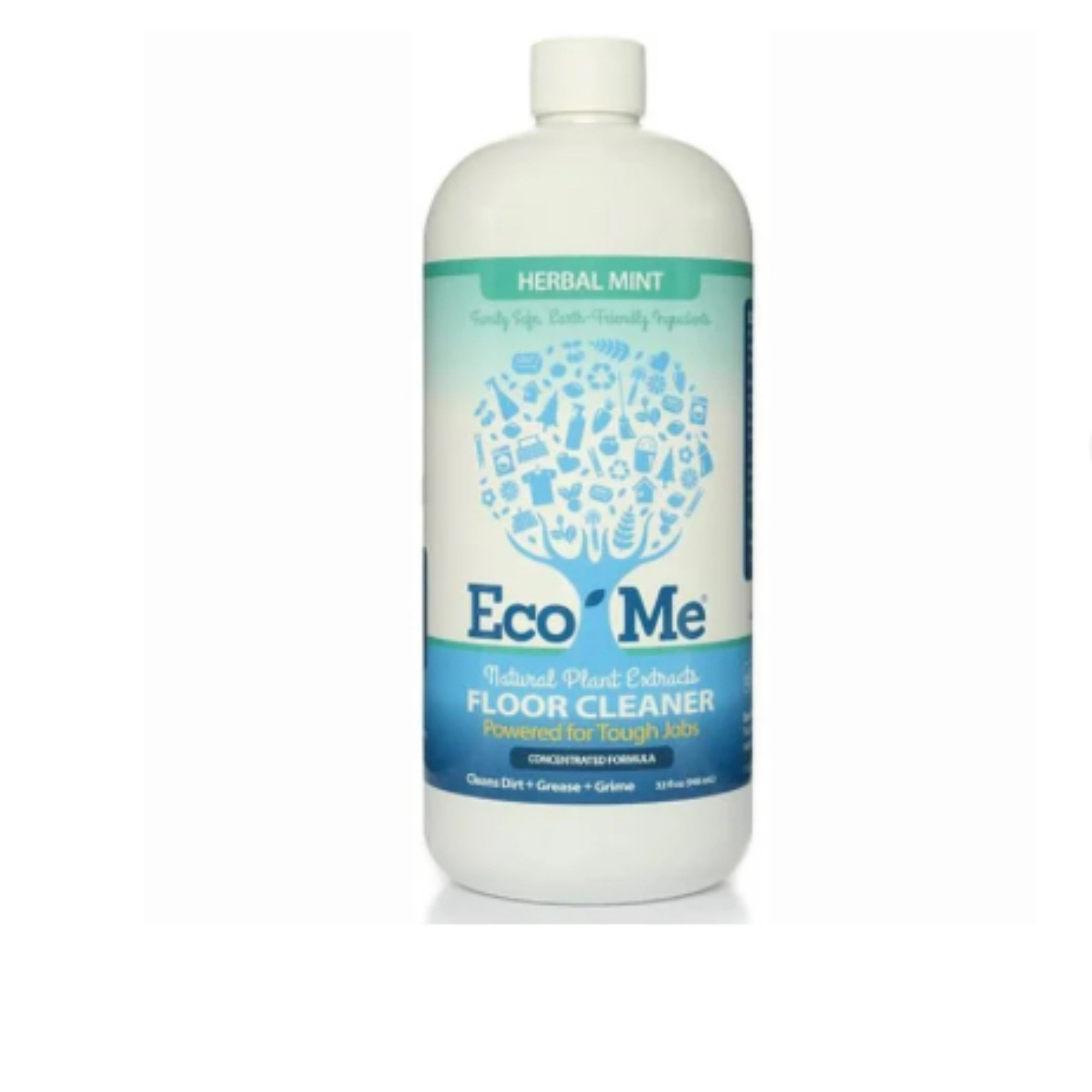
With no dyes, chemicals, synthetic fragrances, colorants of the sulfates, this product is a 100% natural cleaner that includes essential oils made from plants with antibacterial properties. It's also Peta and Leaping Bunny approved meaning no animals were harmed during its testing or making. Ideal for multiple surfaces, it breaks down dirt, food, grease, grime and is gray water and septic safe.
6. DIY solutions
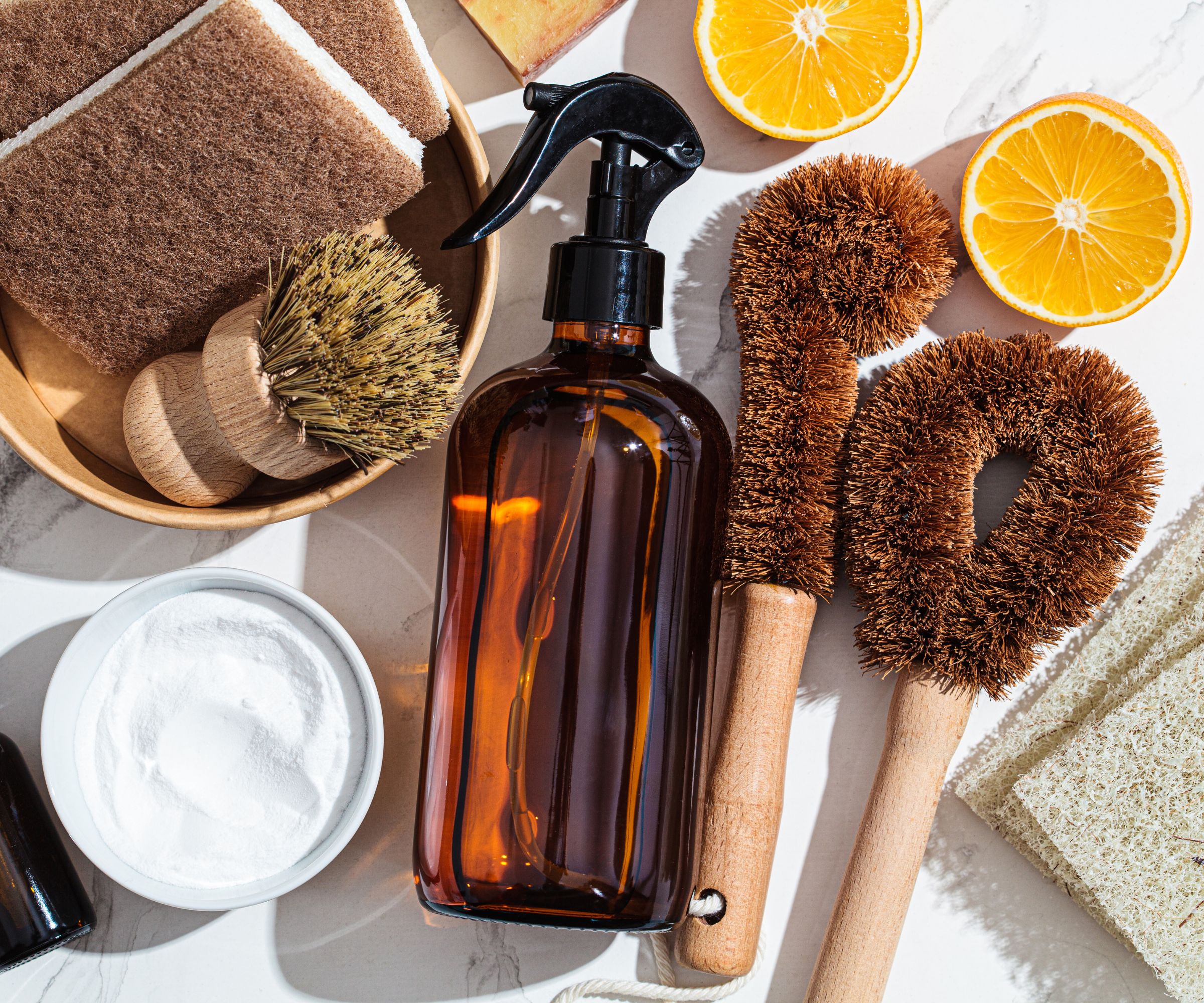
If you love to make your own cleaning products then this is the section for you. Our DIY cleaning solutions won't harm your household, floor or planet and you'll probably have what you need in the pantry already. Some amber glass spray bottles with labels from Amazon will come in handy, too.
- White vinegar – use 2 gallons of water with 1/4 cup of vinegar and 1 tablespoon of dish soap
- Baking soda – mix 2 parts with 1 part water, this option is particularly good for cleaning grout.
- Lemons or essential oils – you can add in a squeeze of lemon for a fresh scent, or a few drops of essential oils like lavender, lemon or orange.
We asked Sabrina Fierman, lifestyle and cleaning guru and director of New York's Little Elves her advice. She says, 'It can depends on the flooring material, but generally, a diluted vinegar or lemon solution can work on most surfaces except marble, granite and other natural stones which will be damaged by acidic solutions.
'For scrubbing action on grout and built-up dirt, baking soda can be added and a soft scrubbing brush or toothbrush can be used. I also like Dr. Bonner’s Castille Soap (available on Amazon). This can be used for almost anything including our own bodies.'
7. Eco cleaning tools
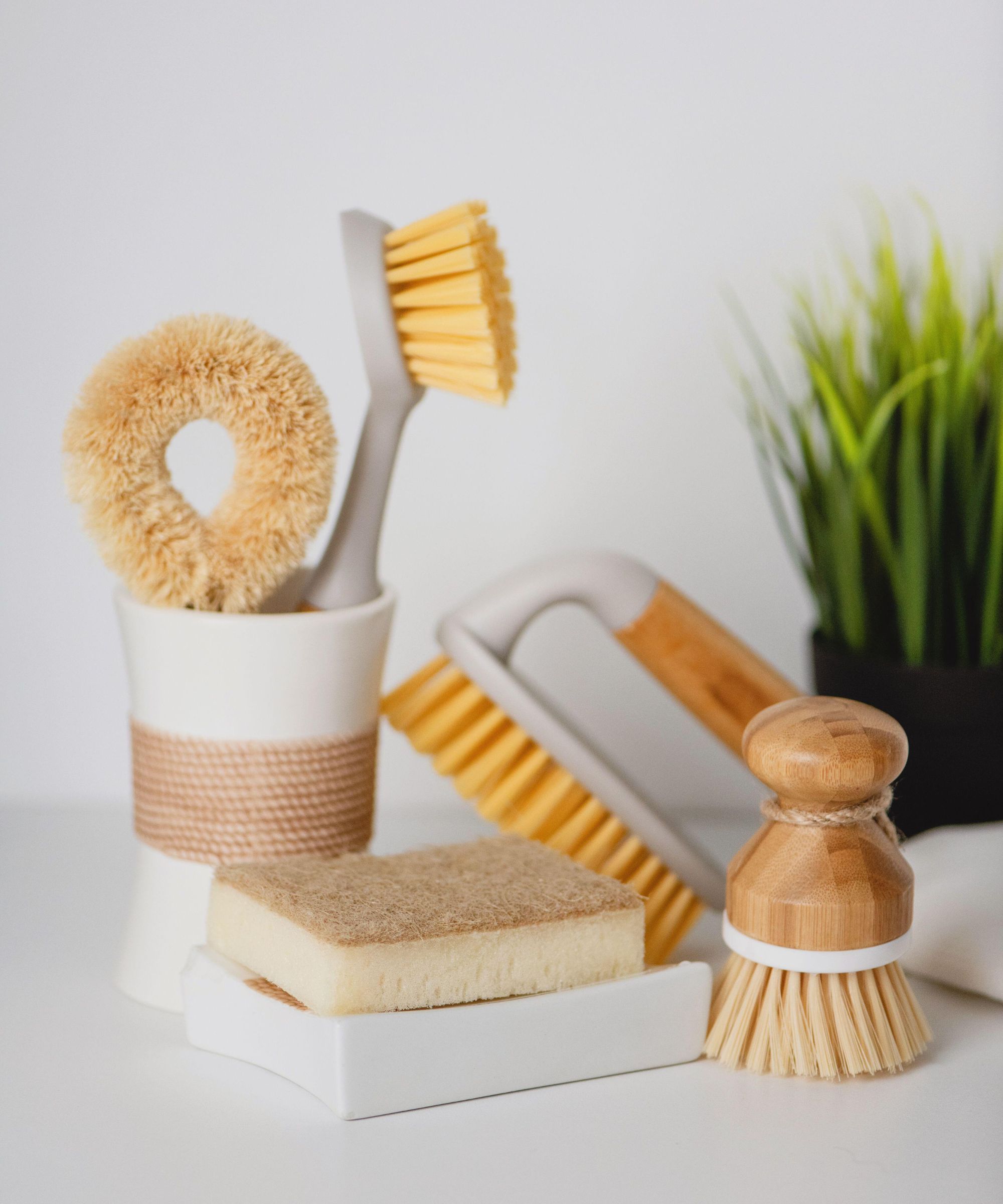
Once you've gathered up your eco-friendly floor-cleaning solutions, you need the best tools to use with them. We've sourced our top buys below.
- An old toothbrush – perfect for scrubbing grout lines.
- Clean old towels – great for drying your floor straight after cleaning, so no slips.
- Old fashioned scrubbing brush, available on Amazon – perfect for those stubborn spills that have dried like shampoo and lotions.
- Bamboo cleaning cloths, available on Amazon – super soft and gentle to use and more eco friendly than microfiber options.
It's important to have the right tools for the job, and as you can see, if you're using a chemical free approach with the cleaning products, then it's worth using eco and sustainable brushes and cloths too.
Meet our experts
Next, learn how to mop floors the right way for a streak free finish, and dive into mopping vs wet vacuuming.







